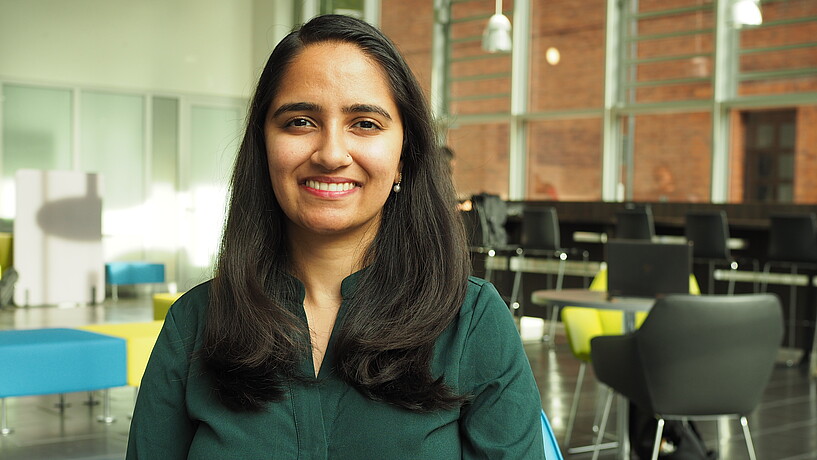Apurva’s research focus for her PhD looked at the epidemiological and transcriptome analysis of iron deficiency in cardiovascular disease. ‘I have always been interested in the field of cardiology and during my Master’s thesis at the UKE, I had the opportunity to work with leading scientists in this field, which helped widen my perspective and gain experience in cardiovascular research. Three months into my Master’s research, I knew that this was something I wanted to continue at PhD level. Fortunately for me, my supervisor, Prof. Dr. Tanja Zeller, was happy to offer me a place on her research team, for which I am very thankful.’
A love of individual research and teamwork
The starting point of Apurva’s PhD thesis was to look at datasets available through general population-based studies and a heart-failure patient cohort. Parallel to the data analysis, she also established her own novel cell-culture model to study the target genes obtained from the transcriptome analysis. Lab work is what she enjoys the most. Designing experiments, analysing the results, presenting the good and bad results and discussing them with other colleagues is what she finds most motivating. ‘I had great team members with whom I could discuss any problems. Networking and finding collaboration partners was also very helpful during my research.’
In addition to research in the lab, interdisciplinary classes, seminars and workshops were an important part of Apurva’s PhD programme at the UKE. ‘The research method seminars were an introduction to biostatistics and R, which were crucial to be able to perform the data analysis in my thesis. Personally, that really pushed me out of my comfort zone. In addition to coding, I have learnt the key skills of perseverance, scientific communication, and strategies of project management.’

